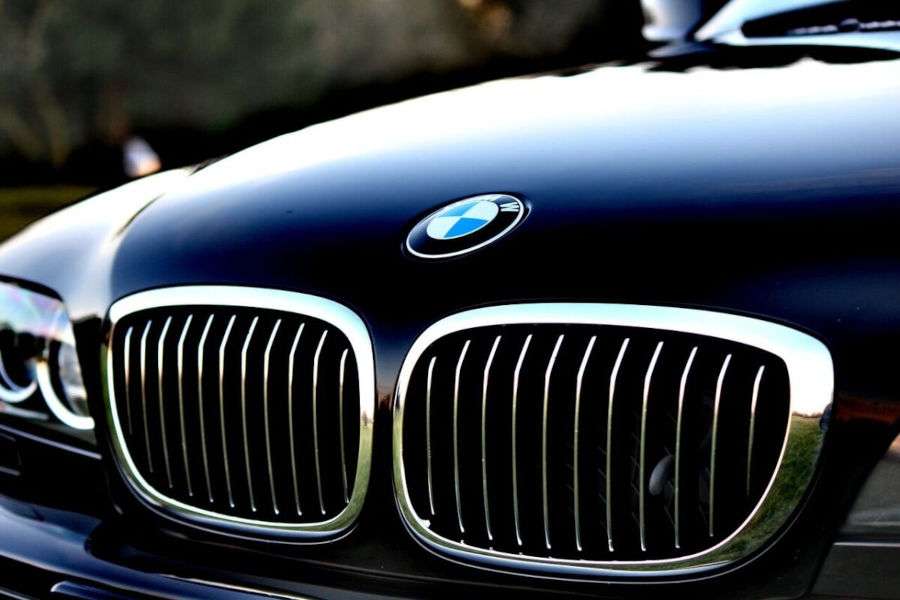
Both BMW and Mercedes Are Not High On Reliability
Reliability is a major concern for anyone looking to purchase a new vehicle. When it comes to luxury brands, cost of maintenance cannot be overlooked. In this BMW vs Mercedes Benz reliability comparison we compare 2 of the world’s most sought after brands to enable you make an informed decision.

VS

BMW and Mercedes Benz are 2 German luxury brands known as durable, prestigious luxury cars. Ironically, they are among the most sought after cars in the world, despite getting poor reliability ratings year after year.
Here is a very popular video explaining the issues of both BMW & Mercedes cars.
Both score averagely at best on reliability though Mercedes Benz ends up being a notch higher than BMW simply because of the cost element. BMWs are extremely costly to maintain.
Not only are parts significantly more expensive than other vehicle brand parts, the cost of labor is another heavy expense. It is difficult to find a qualified professional technician familiar with the workings of BMWs who charges less than $100 per hour.
You must have come across the many, sometimes hilarious acronyms used to refer to BMW in relation to high maintenance costs. Some are ‘Big Money Waster’, ‘Big Mistake Whenever’ and ‘Broke My Wallet.’ Although there are no funny acronyms for Mercedes Benz, the same sentiments are shared about this brand.
We compare reliability of these 2 brands by looking at reliability indexes, customer surveys and maintenance costs.
Reliability Index
A vehicle’s reliability index is a rating assigned to it to give potential buyers an idea of how dependable it is. The figure is determined based on two main factors. How frequently is likely to break down and an average amount of what it will cost you to repair.
Also considered is off-road time. This is the average amount of time the vehicle is likely to spend at the repair shop when these break downs or faults occur.
Why is off road time an important detail to have before buying a car? This figure not only gives you a rough idea of how long you are likely to be inconvenienced without a car when it is at the shop.
It also tells you something about the amount of money you will be spending on repairs in terms of labor hours. In many cases, professional technicians charge you per hour spent working on your vehicle. This figure gives you an indication of how much you will pay your technician for his time and expertise.
The higher the reliability index figure, the less reliable the car is. The lower the rating the more dependable the car is.
How Do BMW and Mercedes – Benz Compare In Reliability According To Reliability Index?
Top BMW Vs. Mercedes – Benz Models Reliability: Reliability Index Table
| Brand | Model | Reliability Index | Off-road hours (average) |
| BMW | X1 | 92 | 4.14 |
| 7 – series | 319 | 3.25 | |
| 5 – series | 158 | 2.85 | |
| Mercedes – Benz | A – class | 132 | 3.15 |
| E- class | 80 | 2.34 | |
| S-class | 345 | 2.6 |
Mercedes-Benz’s E-class topped our reliability indexes with a rating of 80 and the least hours spent on repairs at 2.34 hours. It is followed by BMW’s X1, which has a reliability index of 92 but has the highest number of repair hours which is 4.14.
The Mercedes -Benz A-class is next with a reliability rating of 132, followed by BMW’s 5 series, rated at 158. These will spend an average of 3.15 and 2.85 hours on repairs, respectively. The Mercedes S-class is the least reliable on our list, rating 345 and 2.6 hours spent in repairs.
Customer Surveys
Customer surveys are a reliable source of information because it comes from hundreds of actual users who have experienced the good and bad firsthand.
How do BMW and Mercedes – Benz compare in Reliability according to Customer Surveys?
BMW Vs Mercedes -Benz Reliability: Brand Comparison Table
| BMW | Mercedes – Benz | |
| Consumer Reports Survey 2020 | 17 | 21 |
| J.D Power vehicle dependability study 2020 | 8
123 PP100 | 22
152 PP100 |
| What Car? 2019 reliability survey | 21
(92%) | 24
90.6% |
In the Consumer Reports Survey for 2020, BMW was ranked as the 17th most reliable vehicle brand in the market. Mercedes-Benz followed closely, taking 21st place.
The J.D Power vehicle dependability study for 2020 rated BMW as the 8th most reliable brand, and Mercedes -Benz was ranked 22nd.
This survey also looks at the average number of problems experienced by owners of the various brands and includes this in their overall rankings. BMW was found to have an average of 123 problems per 100 vehicles, while Mercedes -Benz had an average of 12 problems per 100.
Notably, the industry average for problems per 100 vehicles stood at 134. This, therefore, places BMW above average in reliability and Mercedes-Benz below average due to a higher number of problems in their vehicles.
What Car? A leading vehicle brand Survey Company in the UK ranked BMW as the 21st most reliable vehicle brand, giving it a score of 92%. The Mercedes Benz took 24th place and had a score of 90.6%. What Car? Specifically looks at vehicles aged between 5 years and below. Older vehicles of the same brand may show differing results.
Maintenance Costs
One of the most important elements to consider when considering a car’s reliability is your ability to maintain it.
The basic level of vehicle dependability is its condition and how well you have maintained it over the years. A poorly maintained car is inevitably unreliable, and a well-maintained car is almost always reliable.
Both BMW and Mercedes Benz are known to be expensive cars to maintain. This is what Yourmechanic.com have to say about the maintenance of these 2 brands. The data is generated from estimates of total maintenance costs incurred by owners over 10 years.
How do BMW and Mercedes-Benz Compare in Reliability Based on Maintenance Costs?
BMW Vs Mercedes -Benz Reliability: Maintenance Cost Comparison Table
| Brand | Average maintenance cost/year | Most expensive model | Common repair problems |
| BMW | $17,800 | 328i ($15,600) | – Faulty coolant systems
– Leaking oil filter gasket
– Faulty fuel pump
|
| Mercedes-Benz | $12,900 | E 350 ( $14,700) | – Sticking gear shifter
– Faulty engine transmission mounts
– Problematic transmission mounts |
According to YourMechanic.com, BMW and Mercedes Benz are the 2 most expensive cars to maintain. BMW tops the list costing an average of $17,800, and Mercedes is second with an annual maintenance cost of $ 12,900.
Of these, there are some more expensive models and slightly cheaper ones. The most expensive BMW model is the 328i which costs an average of $15,600 in annual maintenance. Mercedes Benz’s E 350 is the most expensive model, costing an average of $14,700 annually.
Common Repair Problems
You may be wondering what maintenance money goes into. Although these luxury brands are known for quality and durability, no vehicle is perfect. All vehicles develop hitches now and then. Some hitches are more common in certain brands.
Here Are Some Common Repair Issues in Bm Ws and Mercedes Benz
BMW Common Repair Problems

Faulty coolant system: The coolant system maintains the engine’s temperature at optimum levels and prevents overheating. This system in BMWs tends to fail, thus allowing the engine to overheat. This problem generally comes up between 80,000 and 120,000 miles. Regular service is the best way to prevent it.
Leaking oil filter gasket: The gasket connects the oil filter to the engine’s moving parts which must be well lubricated. When it is leaking, there is less oil in circulation, increasing engine parts’ wear and tear. It can also cause other mechanical problems. If caught early, this leak can be a fairly easy fix. If it is too long, you may spend several hundred dollars fixing it.
Faulty fuel pump: Some owners have reported problems with the fuel pump. This causes the engine to stutter when at high speed, poor acceleration, and, in rare cases, failure of the engine to turn.
Mercedes – Benz Common Repair Problems

Sticking gear shifter: This is a problem in E-class and S-class models. The engine starts and runs smoothly, but the shifter remains stuck in the park position. A failure in the selector module causes it.
Faulty engine transmission mounts: In older models, these are made of rubber. They serve to maintain the stability of the engine and transmission, therefore, preventing vibration. Without these, vibration can be felt in the passenger area. When the rubber mounts age, they fail, and you feel a strong kick every time you accelerate.
Faulty mass air flow sensor: Inaccurate measurements by the mass airflow sensors may cause hard starts and rough idling. A clogged mass airflow sensor causes it. This can be prevented by cleaning it regularly.
FAQs
Which is the cheapest BMW model in America?
Does Mercedes offer free maintenance?
Conclusion
BMW and Mercedes Benz are German cars categorized as luxury, high-end vehicles. Neither scores well on reliability index ratings; customer surveys place them as average vehicles. Their poor rating can be attributed to high maintenance costs, which directly affect reliability.
The Mercedes Benz manages to top its German counterpart because it is slightly cheaper to maintain.

